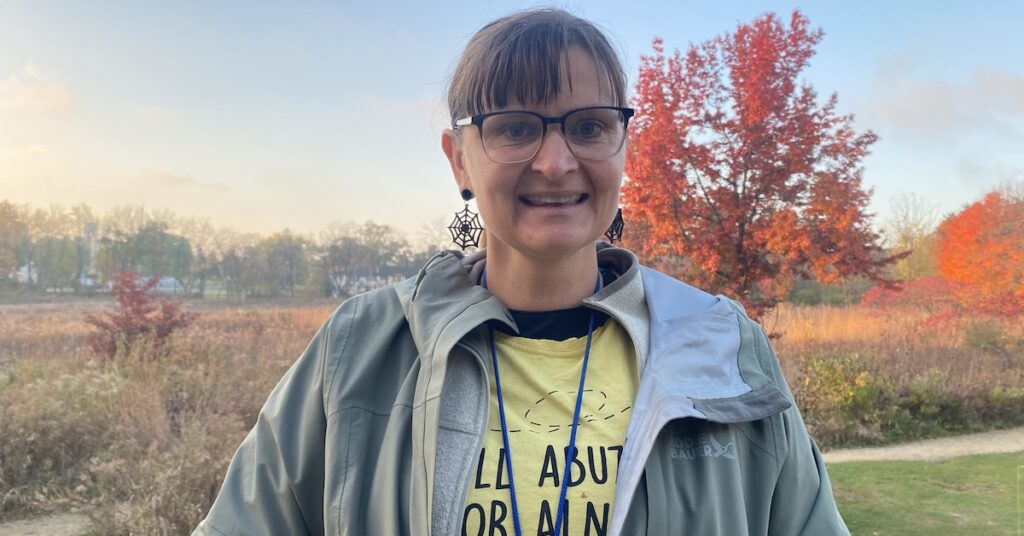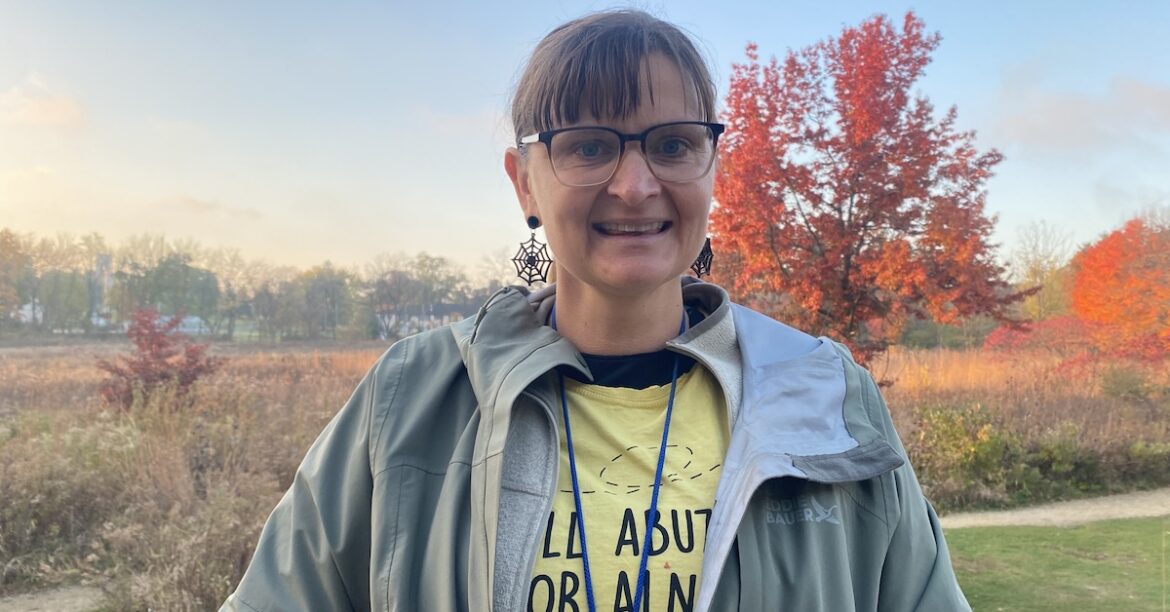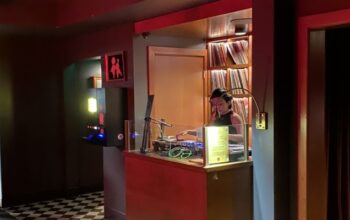Nicky Mondroski is a normal preschool teacher in every way — except her classroom is slightly larger than average.
It can get a little cold sometimes, and often it’s a bit damp, because there’s no ceiling to keep the rain out, no windows or walls either. There’s also more than one class pet — frogs, squirrels, rabbits — and they’re free to wander.
Mondroski’s favorite subject to teach? Maple syruping. She’s no ordinary preschool teacher, since she teaches at no ordinary preschool.
Since 2009, Mondroski, 46, has worked as a naturalist at the Aldo Leopold Nature Center in Monona. When the center launched its nature preschool program in 2019, she was among the first to join its small staff.
The nature preschool may seem unconventional, but it serves a critical purpose. In an increasingly digitized world, children’s time spent outdoors is dwindling: According to a 2021 study published in the American Journal of Preventative Medicine, nearly 40% of preschool-aged children play outdoors for less than an hour per weekday.
But the Aldo Leopold Nature Center’s vast 21-acre property is Mondroski’s classroom, and unless the temperature dips below zero, all classes at the preschool are held outdoors.
For Mondroski, being a nature preschool educator is the perfect mesh of her passion for teaching and her love of nature. She aims to instill that love — something she’s had her entire life in her students.
“As a kid, to put it really broadly, I wanted to save the world,” Mondroski said.
She’d always dreamed of becoming a wildlife biologist but realized while attending UW–Stevens Point that she wanted to do more than just study nature: She wanted to share its wonders with others.
Mondroski switched her major from wildlife biology to environmental education and embarked on a teaching career that included two years at Nature’s Classroom Institute, a residential environmental education program for third- to ninth-grade students in Mukwonago.
There, she began dating her now-husband, Mike Ring. The couple resides in Madison with their two children, who’ve grown into nature lovers themselves.
“Ever since they’ve been little, we just roll them around in the mud,” said Ring, who works for the Wisconsin Department of Natural Resources. “We don’t worry about them getting dirty.”
Mondroski’s no stranger to getting dirty herself. During her 16-year tenure at the nature center, she’s become adept at handling the unique challenges of teaching in an outdoor setting — challenges that include braving Wisconsin winters and discouraging stomp-happy children from squishing creatures they might encounter. Now, she’s considered a veteran of the program.
“I would consider her a mentor in every regard of the word,” said Maggy Adams, Mondroski’s co-teacher, who began working at the center a year ago. Mondroski, with her down-to-earth nature and pragmatic approach to teaching, was instrumental in helping Adams adjust to her new job, she said.
On a typical day, Mondroski and Adams share responsibilities. Daily activities include a hike around the nature center’s property, sometimes with a particular theme: For example, in October and November, Mondroski said, she might tell her students to look for fall changes.
Wisconsin’s fickle climate means that being outside isn’t always comfortable (and at certain times of year, it seldom is), but according to Mondroski, that’s not a bad thing.
“Having a comfortableness in nature makes a different kid,” she said. “You get past the uncomfortable and you go, like, ‘Oh, I’m fine. This is fun.’”
Thus, in winter, it wouldn’t be uncommon to see Mondroski, Adams and their class of snowsuit-clad children wading through snowbanks, or in spring, to hear their rain boots squelching in the mud over the steady pitter-pattering of an April shower.
As the seasons change, Mondroski sees her students change, too.
“The reason why I still like to work at the preschool is because you get to see these giant changes in their life that happen, and these huge amounts of growth and learning,” she said.
She’s watched her students become more inquisitive and observant individuals — the sort of kids who, Mondroski said, are more excited to inspect a dead squirrel’s cadaver than they are for snack time, and more likely to reach for a stick than a crayon. (“Like, they just love sticks so much,” she said.)
In Mondroski’s book, that means they’re already naturalists, and she’s done her job right. Perhaps that’s even better than saving the world.






